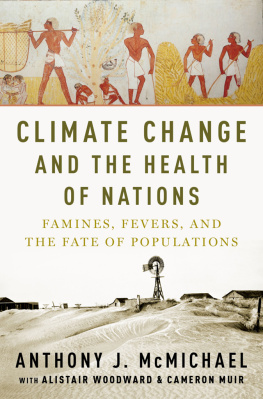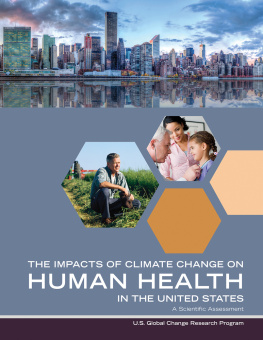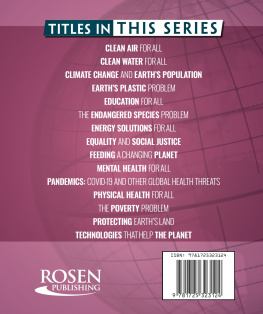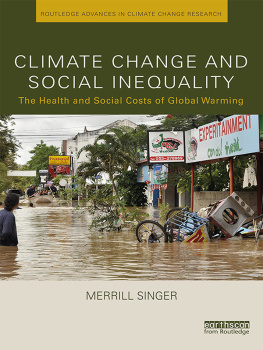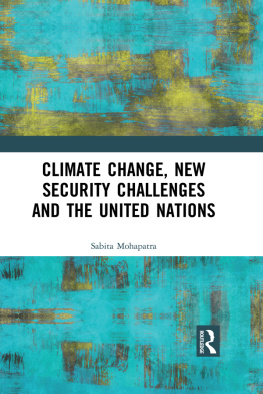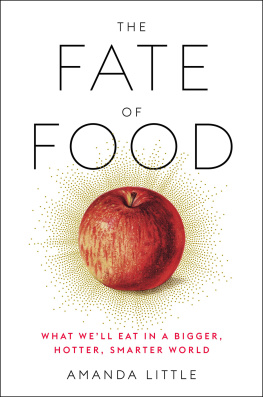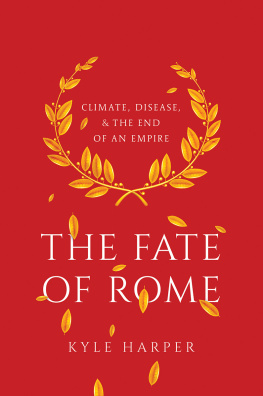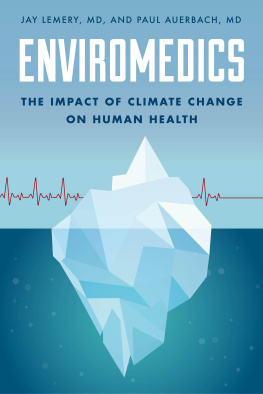The seminal work of Tony McMichael has led to the growing recognition that human health is threatened by unsustainable global environmental trends. This book is essential reading for those concerned with the future of humanity in the Anthropocene epoch. It compellingly describes how human health will be undermined in the absence of decisive and prompt action but also articulates a visionary way forward through policies which can reduce the environmental footprint of humanity whilst safeguarding health and creating more resilient societies.
Professor Sir Andy Haines, London School of Hygiene and Tropical Medicine
Just as nothing in biology makes sense except in the light of evolution (Dobzhansky), nothing in the health of human societies makes sense except in the light of material flows, energy flows, and climate. This magisterial work illuminates that framework, combining historical sweep, environmental, biomedical and epidemiologic insight, common sense, and great compassion. McMichaelone of our greatest health thinkershas given us an indispensable book.
Howard Frumkin, Dean, School of Public Health, University of Washington, Seattle, USA
The greatest risks of climate change may well be those it poses to human health. Tony McMichael helps us face the future by understanding the past: this is an unprecedented investigation into the interactions between climate and human wellbeing over the entire life of our species. That McMichaels colleagues have brought his final work to publication is fitting tribute to a lifetime of pioneering research and teaching in climate change and medical science.
Sir David King, UK Foreign Secretarys Special Representative for Climate Change; Former UK Government Chief Scientific Adviser.
Tony McMichael was a master at mixing solid research with a good dose of inspiration. He told us that the Earth is no longer able to sustain our avid desire to consume. After reading this book you too may be inspired to become a visionary campaigner, as was Tony, to protect our health from unsustainable environmental trends.
Maria Neira, Director of the Department of Public Health, Environmental and Social Determinants of Health, World Health Organization
For decades Tony McMichael has been among the most insightful authorities on global health and environmental issues. In this book, he provides a guide to the linkages between climate change and human health through the ages. In stirring prose, McMichael carries the story from climates role in early human evolution to the current health impacts of a warming Earth. No book could be more timely.
J.R. McNeill, Georgetown University; author of Something New Under the Sun: An Environmental History of the Twentieth-century World
This book constitutes the third in the McMichael trilogy on climate and health. The earlier books described the effects of climate change on human health; this latest volume documents impacts on the health of societies throughout history from changes in climate. While we now better understand how climate has shaped humans and their world in the past, this book gives a sobering and, in the end, frightening vision of where we might be headed in the future.
Kirk R. Smith, Professor of Global Environmental Health, School of Public Health, University of California, Berkeley, USA
Tony McMichael clarifies our thoughts about climate change by shifting the focus from the physics of whats happening in the oceans and atmosphere to the long term consequences for health, well-being and the future of our (and other) species. Seen through that prism, the need for immediate and meaningful corrective action is obvious.
Peter Doherty, Laureate Professor, The Peter Doherty Institute for Infection & Immunity, Melbourne University
The untimely death of Tony McMichael robbed us of the major source of wisdom about the health impacts, not just of climate change, but of how uncontrolled consumption by homo-sapiens is damaging all our futures. This scholarly book of the historical interplay between climate, human activity and health is his last magnum opus; I hope that politicians read it!
Fiona Stanley AC, FAA, FASSA
CLIMATE CHANGE AND THE HEALTH OF NATIONS


Oxford University Press is a department of the University of Oxford. It furthers the Universitys objective of excellence in research, scholarship, and education by publishing worldwide. Oxford is a registered trade mark of Oxford University Press in the UK and certain other countries.
Published in the United States of America by Oxford University Press
198 Madison Avenue, New York, NY 10016, United States of America.
Oxford University Press 2017
All rights reserved. No part of this publication may be reproduced, stored in a retrieval system, or transmitted, in any form or by any means, without the prior permission in writing of Oxford University Press, or as expressly permitted by law, by license, or under terms agreed with the appropriate reproduction rights organization. Inquiries concerning reproduction outside the scope of the above should be sent to the Rights Department, Oxford University Press, at the address above.
You must not circulate this work in any other form and you must impose this same condition on any acquirer.
Library of Congress Cataloging-in-Publication Data
Names: McMichael, A. J. (Anthony J.), author. | Woodward, Alistair, author. | Muir, Cameron.
Title: Climate change and the health of nations : famines, fevers, and the fate of populations / Anthony J. McMichael with Alistair Woodward and Cameron Muir.
Description: New York, NY, United States of America : Oxford University Press, [2017] | Includes bibliographical references.
Identifiers: LCCN 2016034533 | ISBN 9780190262952 | eISBN 9780190262976
Subjects: LCSH: Human beingsEffect of climate on. | Climatic changesHealth aspects.
Classification: LCC GF71 .M46 2017 | DDC 304.2/5dc23
LC record available at https://lccn.loc.gov/2016034533
To the grandchildren of our world
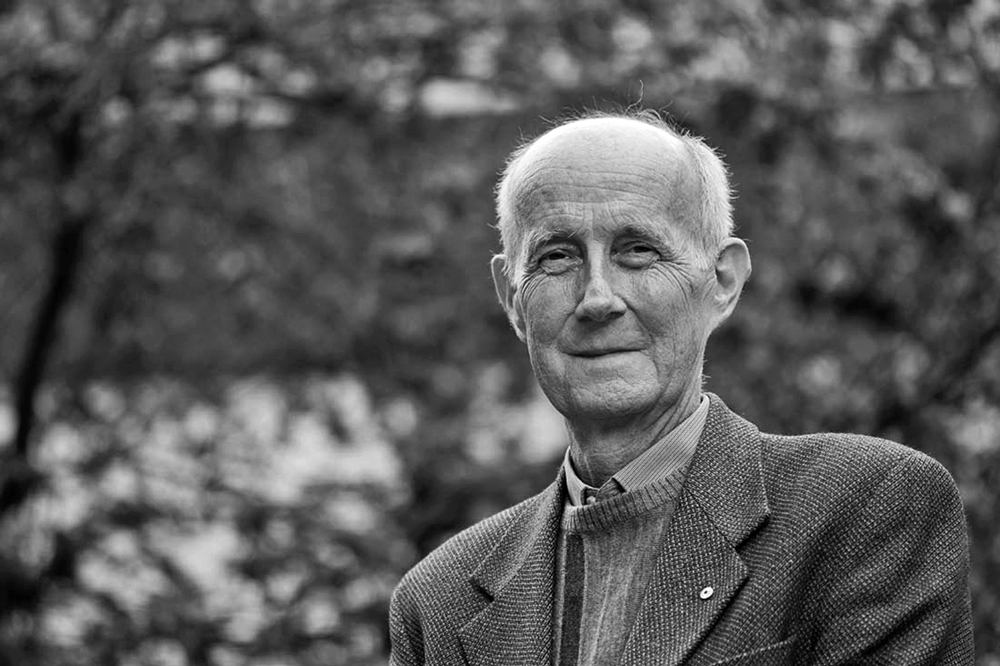
CONTENTS



This book is about how climate has played upon the health and fates of populations throughout the 200,000-year odyssey of the human species. You may ask: Why write a book about the past when todays big challenge is to avert future climate change? My answer is that knowledge about past human experiences of natural climate shifts alerts us to the risks that humankind faces. The landscapes of past millennia are littered with famines and fevers, often provoked by natural changes in climate systems. The future prospect may be darker if, as now seems likely, unusually large and rapid climate change, accompanied by extreme weather variability, lies ahead.

